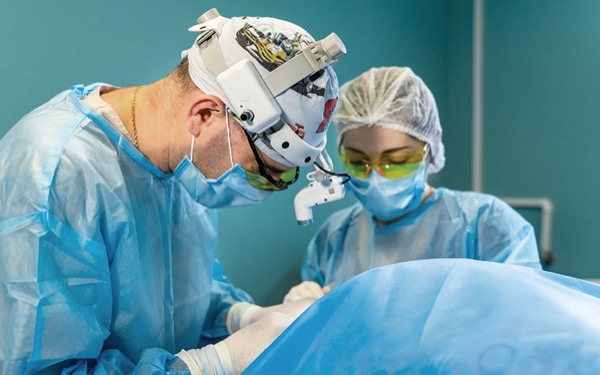
After you have just comfortably eased into your seat on the Boeing 777 for your five-hour flight to the West Coast and have arranged all of your appropriate technology and reading material, the pilot comes on the intercom: “Ladies and gentlemen, this is Capt. Tim Roberts and it is my pleasure to welcome you on board today for our flight to Los Angeles. I am also delighted to let you know that Jack Marshall will be in the pilot’s seat. Jack has had many hours in our flight simulator and has had terrific supervision by one of our outstanding line check pilots. I, of course, will be right here as his co-pilot and will be ready to assist him in any way that I can. So sit back, relax and enjoy today’s flight.”
So, what is your visceral response to this announcement? As a public consumer, are you happy to be part of this learning exercise, although you might not have an understanding of the training involved? Would you relish an opportunity to transfer to another flight? Would you rather not have known what plans have been made in the cockpit for today’s trip? In fact, the flying public knows very little as to what went into the training of a “new” pilot, but for most of us, we feel safe that graduated experience is working in the commercial airline world. Similarly, the public has little knowledge of the training of a newly minted surgeon and the participation of a surgical trainee in operative care that ultimately leads to the development of one who is capable of independent skill and decision making.
A recent article in the Journal of the American College of Surgeons (2021;232:8-15) addressed this issue through an electronic survey of the nonmedical public that captured attitudes and perceptions regarding surgical resident autonomy in training. The response rate to this survey was an amazing 93% (2,005 of 2,148)! The study evaluated demographic characteristics of the respondents (age, sex, race, ethnicity, insurance coverage and educational level) and compared them with a willingness of those surveyed to have surgical residents participate in their operative procedures, if required. After multivariable logistic regression analysis, the factors most likely associated with respondents who would decline allowing a resident to participate in their operation were female sex, lack of health insurance, Black race and Hispanic ethnicity. Further analysis showed that younger participants (<50 years), males, Blacks, Hispanic respondents, those working in health care or insured tend to believe that resident involvement increased operative complications!
What are we to make of this study? For me, it is clear that the surgical community needs to undertake a very vigorous and concerted effort to educate the public on the importance of resident participation in the clinical management of patients who seek care, especially in our academic surgical training centers. This educational responsibility must include individual attending and supervising surgeons, as well as our professional surgical organizations dedicated to the education and certification of surgeons. The public needs to know that graduated experience and participation of young surgeons in clinical operative management, despite the modern use of simulators and skill laboratories, is the ultimate way that the next generation of surgeons will gain autonomy and independence. Importantly, only one-fifth of the survey respondents noted above believed that PGY-5 surgical residents should be allowed to perform an operation at the “supervision only” level!
Just like the airline captain who announces a strategy to his or her attentive passengers, those of us who have the privilege of including surgical trainees in our operative management have an important role in educating each patient regarding the need and benefits of having these young men and women involved in real-world operations. My own approach has always been to introduce participating residents to my patients and to indicate that we are a team who will provide their care and that, although my resident assistant may perform portions of their operation, I will be supervising and involved in every facet of their procedure. Did I ever experience negativity and pushback? Of course. Just as the study cited above indicated, there are patients who eschew ever having trainees involved in their operative care. Indeed, I have had a few patients seek an alternative surgical venue after I explained that I was dedicated to my academic responsibility to train young surgeons in the operating room.
The mission for us as a surgical community is to counter misinformation regarding the strategies used to train young surgeons and to assure that they have the skill and judgment for independent surgical practice. Unfortunately, the past decade has indicated that residents who complete their training have concerns about their achievement of autonomy and certain operative skill sets. Our surgical organizations must develop educational programs and effective messaging for the public, just as the airline industry has done, to allow all potential patients to understand that graduated, hands-on surgical training is a strategy that no one should fear or disparage.
Dr. Greene is a surgeon in Charlotte, N.C.
This article is from the March 2021 print issue.



Please log in to post a comment
I could write pages in response to the opinion piece. I learned the hard way about the education of medical students and residents in the operating room when I faced my first, and only, malpractice case as a third-year resident. I used to be bitter--but no more because I could not have asked for a more personal learning experience on resident education, medical-legal actions of residents, ethics of our attendings, and the three sides of this argument: patient perspective, surgeon perspective, and resident perspective.
As a medical student at Mount Sinai in the late '80's, I watched an attending gynecological surgeon tell a patient, "if you won't let the students and residents participate in your care, I can't take care of you. You are at a major teaching hospital and when you made your appointment its made clear your care will be shared with students and residents. I'm sorry." He left the room. My jaw hit the floor. This was ethics and medical education at its best. (The patient was there for a non-emergent/urgent issue).
Then, as a third-year resident, I was involved in the only lawsuit of my career. The plaintiff's attorney wanted "assault and battery" charges filed against me because the attending physician did NOT disclose that residents would be involved in the care of the 16-year-old patient. Battery? Yes, because I'd assisted in the case. When the lawyers tried to find out which of us had the deeper pocket, and who was "the surgeon" (i.e., was it the resident [me] or the surgeon), the attending Chief of Surgery couldn't run far enough away. You would have thought that he was in another country and not standing directly across from me directing my every move. An example of medical ethics at its worst. Never mind, he billed, he coded, he was the Chief of Surgery in a large teaching hospital. None of that mattered. In his view, the third-year resident was "the surgeon". Thankfully, the plaintiffs attorney knew better. They knew I wasn't the person paid $2,000 by the insurance company. Imagine: if the resident is always considered "the surgeon", they'd start demanding equal pay as their professors--exposing another problem with medical education: a licensed "resident" in the eyes of the law is equal to any other licensed attending--regardless of training. You are "licensed" and that is all that matters.
Years later I worked with a surgeon who would NEVER admit to a patient an assistant was present during cases. They would often wonder why they received a bill from the assistant. Who was this person? What did they do? You told me YOU did the operation. You mean others were present?
In my opinion, the surgeon should always tell the patient there will be medical students and/or residents present. They should also tell the patient that "Dr. X" assisted me in your care (preferably before the operation begins).